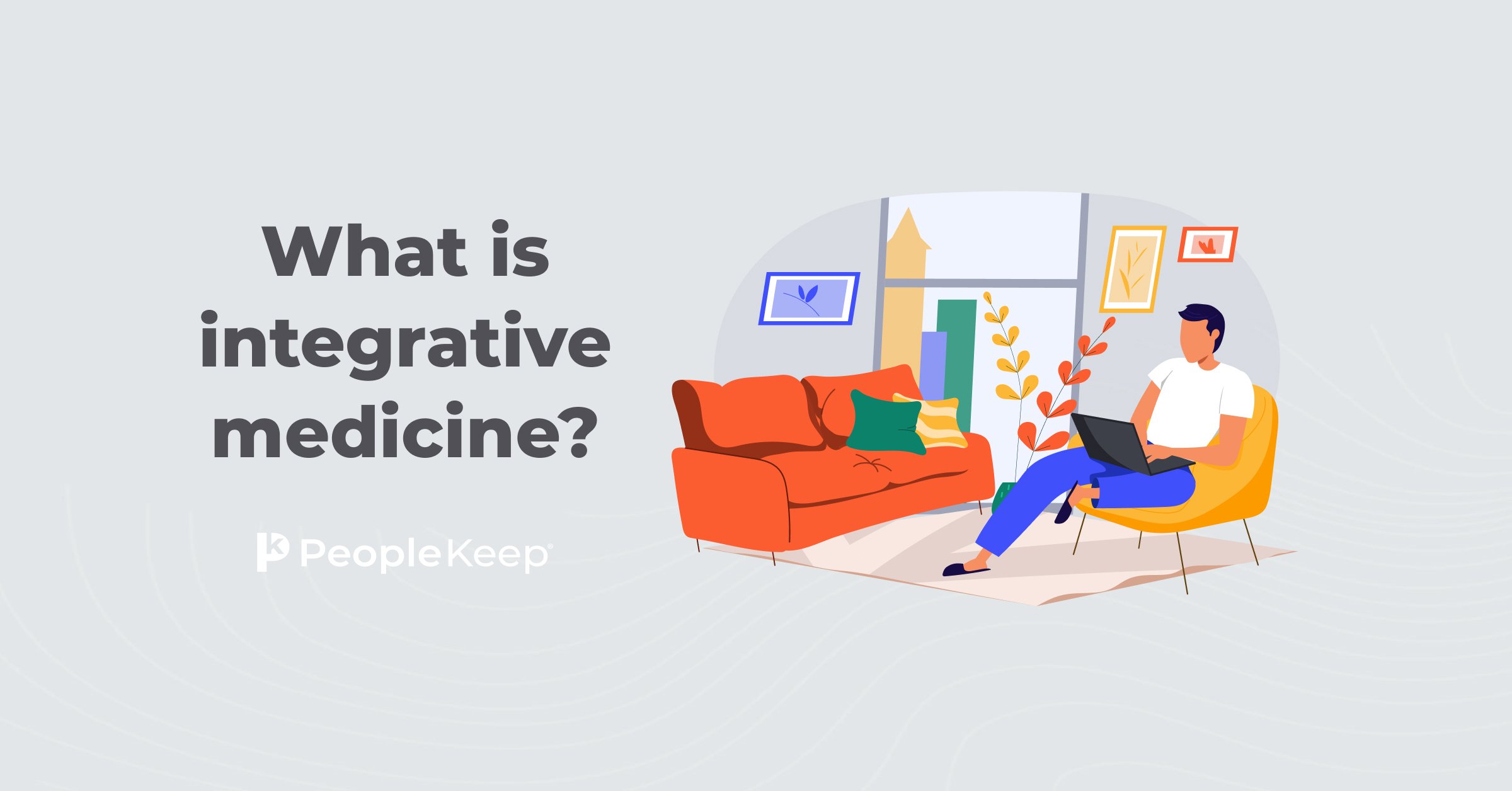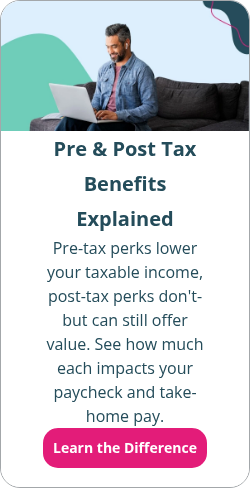Can you use an HRA, HSA, or FSA to pay for general wellness expenses?
By Elizabeth Walker on May 8, 2024 at 8:50 AM
General wellness is becoming a top concern for Americans. Out of 169 countries, the U.S. ranks 35th for overall citizen health1. According to a 2023 Gallup survey, more Americans ate less healthy, had higher cholesterol, and received more diabetes diagnoses than before the COVID-19 pandemic2. That’s why more individuals have recently turned to general wellness programs to improve their overall health.
General wellness activities and healthy foods can be expensive. If you have a health reimbursement arrangement (HRA), health savings account (HSA), or healthcare flexible spending account (FSA), you have access to a powerful tool that can help you pay for your out-of-pocket medical costs. But can these popular benefits also cover your wellness expenses?
In this article, we’ll briefly explain how HRAs, HSAs, and FSAs work and whether or not they can help you pay for your wellness expenses.
Takeaways from this blog post:
- HRAs, HSAs, and FSAs are flexible and tax-advantaged employee health benefits that help individuals pay for a wide range of out-of-pocket medical costs they experience in their daily lives.
- The IRS doesn’t allow individuals with an HRA, HSA, or FSA to pay for general health and wellness expenses unless the service or item treats a specific medical condition noted by a doctor.
- Unlike other wellness benefits—like health stipends—HRAs, HSAs, and FSAs don’t cover general wellness expenses. However, they still make a positive impact by covering other medical care costs listed in IRS Publication 502 and supporting a healthy lifestyle.
How does an HRA work?
An HRA is an employer-funded health benefit designed to reimburse employees tax-free for qualified out-of-pocket medical expenses outlined in IRS Publication 5023. With an HRA, employers choose how much monthly allowance to offer their employees. Once an employee purchases and submits proof of an eligible expense, the employer reimburses them tax-free up to their set allowance amount.
Most traditional medical services and items are reimbursable with a receipt or invoice showing the proof of payment. However, certain wellness services that support a healthy lifestyle—like holistic medicines, vitamins, fitness programs, and nutritional counseling—are only reimbursable if an employee submits a doctor’s note indicating the treatment or items are medically necessary.
The following are the three types of HRAs that employers can offer through PeopleKeep to help you on your health and wellness journey:
- The qualified small employer HRA (QSEHRA)
- The individual coverage HRA (ICHRA)
- The group coverage HRA (GCHRA)
With a QSEHRA or ICHRA, employers can reimburse employees for their health insurance premiums and out-of-pocket medical expenses. In contrast, a GCHRA reimburses employees with group plans for out-of-pocket expenses only.
HRAs have become popular recently because they’re flexible, customizable, and have tax advantages. HRA payments are tax-free to the employer and are income-tax-free for employees. This makes HRAs an attractive option for employers and employees seeking an alternative to traditional group health plans.
How does an HSA work?
An HSA is a bank account that allows employers and employees to contribute pre-tax dollars for the employee’s healthcare expenses. An individual or employer can open an HSA. But in either case, the employee always owns it—even if they leave their employer’s company.
You must enroll in an HSA-qualified high deductible health plan (HDHP) to contribute to an HSA. All contributions roll over annually and remain in the HSA until you use them. There’s no vesting schedule or tax penalty if you don’t spend the money. However, the IRS sets annual maximum contribution limits you can’t exceed.
HSA administrators will typically issue HSA participants a debit or credit card to pay for qualified medical costs, like deductibles, preventive care, prescription drugs, smoking cessation programs, and other items listed in IRS Publication 502. Individuals aged 65 and older can use their HSA for anything without penalty. If those younger than 65 use their HSA funds on non-healthcare-related items, they must pay taxes on the money plus a 20% penalty.
How does an FSA work?
Healthcare FSAs, also known as medical FSAs, are employer-owned accounts that allow employees to use pre-tax dollars to pay for out-of-pocket healthcare costs. FSAs are employer-owned and tied to employment, meaning employees can’t keep the account if they leave their employer’s organization.
Even though they’re employer-owned, employers and employees can contribute to an FSA. However, the account has a maximum annual contribution limit. In 2024, the limit is $3,200. If employers allow the funds to carry over, the maximum carryover amount is $640. Otherwise, FSAs have a “use it or lose it” provision. This means employees must forfeit their unused FSA money at the end of the year.
Like the HSA and HRA, IRS Publication 502 outlines the eligible expenses for FSAs. Employees can withdraw FSA funds via an account-specific debit or credit card or request expense reimbursement from their employers for qualified items. But they can’t receive reimbursements for health insurance premiums, long-term care coverage, or any healthcare expenses that another health plan covers, like traditional health insurance or an HRA.
Can an HRA, HSA, or FSA cover wellness expenses?
According to a recent IRS notice, individuals can’t use an HRA, HSA, or FSA to pay for general health and wellness expenses, like food, exercise programs, and nutritional counseling4. Unless the physical or mental wellness expense treats a specific medical condition notated by a doctor, the IRS considers the expense as “personal” and, therefore, ineligible.
For example, an eye exam is an eligible expense because it can diagnose whether an individual has a disease or illness. However, the cost of a weight-loss program (unless treating a specific condition diagnosed by a doctor) is only to improve general health and qualifies as an ineligible personal expense5.
A doctor’s note that doesn’t outline the necessary treatment for a specific medical condition doesn’t convert a personal expense into an eligible healthcare cost. Employers and healthcare companies can’t mislead current plan participants about this. If an individual uses these benefits to pay for or reimburse an ineligible expense, they must pay income taxes on the amount.
However, there are many qualified wellness expenses listed in IRS Publication 502 that you can use your HRA, HSA, or FSA to pay for if you have a doctor’s note and it treats a specific medical condition, like dietary and herbal supplements, nutrition services, fitness equipment, gym membership fees, and more.
You can also still leverage your benefit to cover eligible out-of-pocket healthcare costs unrelated to general wellness, like chiropractic care, emergency health services, fertility treatment, mental health counseling, and more. These benefits go a long way toward providing financial support and control over your physical health.
Conclusion
An unhealthy lifestyle can make you more susceptible to chronic illnesses, obesity, and even a shorter life span. Many mental and physical health symptoms can be treated with traditional medicine. But more and more Americans are adopting alternative wellness practices to heal their ailments at the source and promote a more active lifestyle.
While the IRS doesn’t allow HRAs, HSAs, and FSAs to cover most general wellness expenses, they’re still real benefits that can help you pay for a range of health costs. And with the money you’ll save with an HRA, HSA, or FSA, you’ll be in a better financial position to pay for the activities and items that can help you reach your wellness goals.
1. https://optimeddoctors.com/how-healthy-is-america/
2. https://news.gallup.com/poll/546989/physical-health-plummets-pandemic.aspx
Check out more resources
See these related articles

7 ways to save on health insurance
Looking to save on health insurance? Discover 7 effective strategies to reduce your healthcare costs in this comprehensive guide.

Health insurance options for franchises
Are you a franchise owner? Explore your health insurance options with this comprehensive guide, tailored specifically for franchises.

What is integrative medicine?
Discover the benefits of integrative medicine and how it combines traditional and alternative therapies for a holistic approach to health and wellness.



